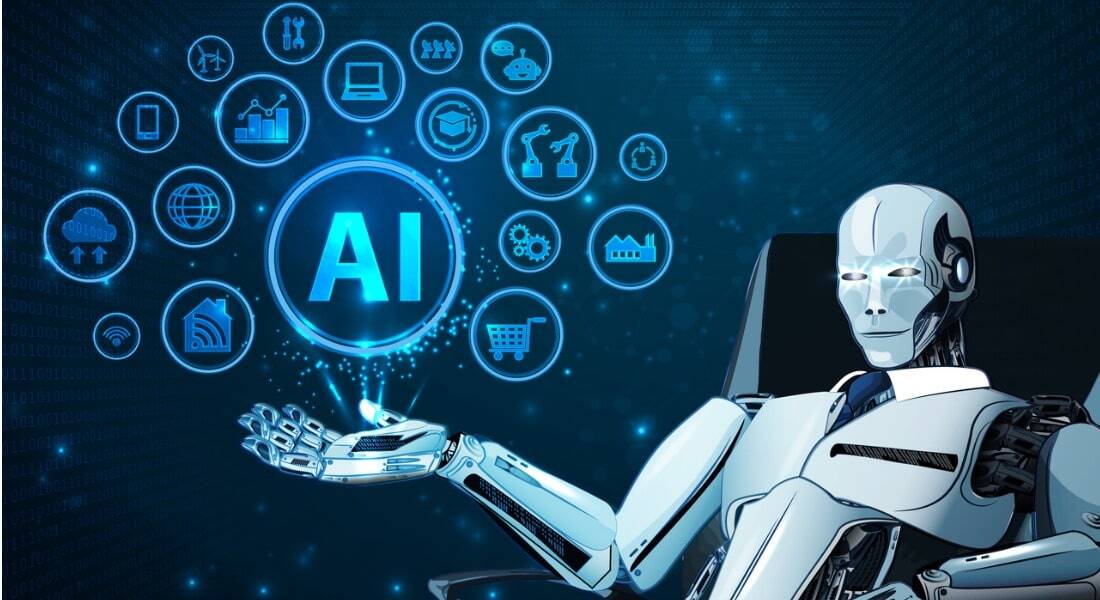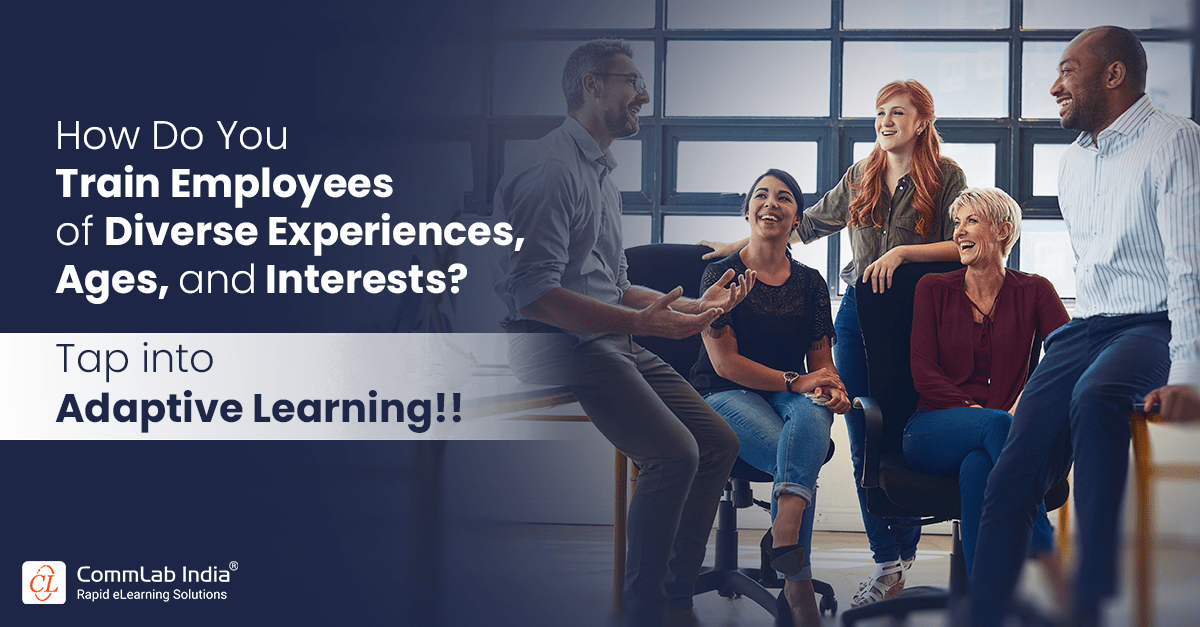Adaptive Learning 101: Key Questions to Get You Started
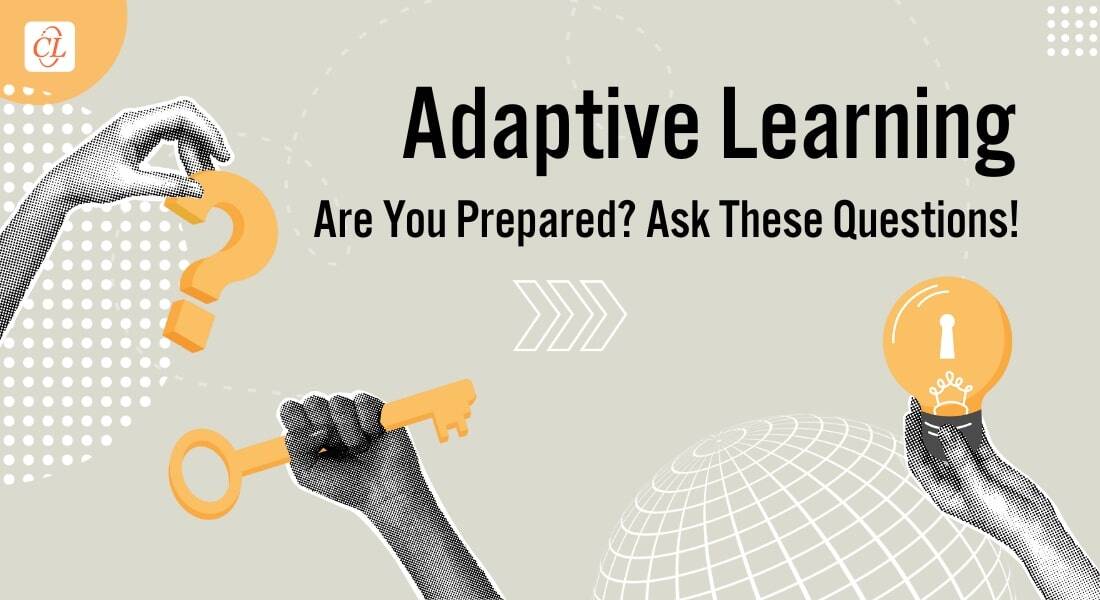
Think for a minute about employee training and development. How are employees usually trained? Too often, either all of them are taken through an ILT session or all are provided with the same eLearning course. Employees are all made to fit into the training being provided, regardless of their individual needs.
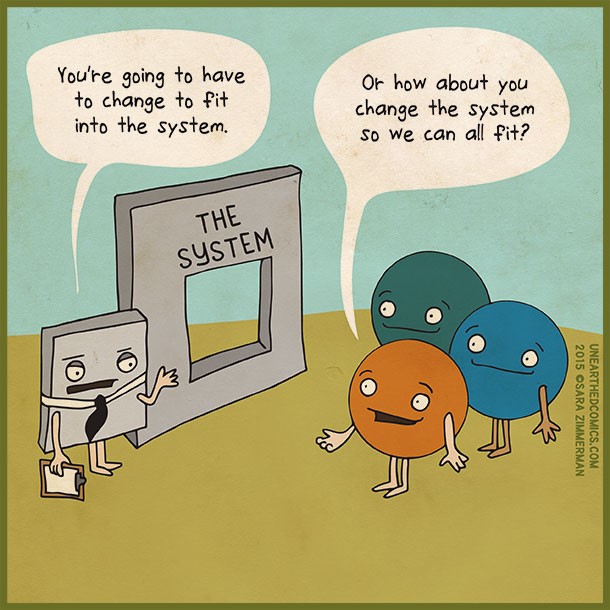
At the same time, employees feel that job-related training and development directly influences their decision to stay at the company or not. Hence, it is important you strive to develop and deliver the best learning experience to learners – a learning experience that will cater to the unique needs of each of your learners. This is where adaptive learning comes into play; change the corporate training experiences to fit the individual.
→ Download Now: AI in Corporate Training
Table Of Content
- What is Adaptive Learning?
- Why is Adaptive Learning Suitable for Corporate Training?
- How is Adaptive Learning Different from Personalized Learning?
- Is an LMS Required for Adaptive Learning?
- Are there Different Levels in Adaptive Learning?
- What Questions to Ask for Successful Adaptive Learning Implementation?
What is Adaptive Learning?
Adaptive learning is a technique that uses technology and data to address each learner’s trouble spots by automatically providing individual support, thereby making learning more effective.
EXAMPLE:
Joe and James are sales reps in a pharmaceutical company, going through an online product training program that introduces them to the various drugs manufactured by the company, their uses, and contraindications.

Joe is unable to answer questions related to the contraindications of drug A. The adaptive learning courseware gives Joe content related to a basic overview of drug contraindications and retrains him on the content related to product A before he can proceed to the next module of the course.
Why is Adaptive Learning Suitable for Corporate Training?
Say Goodbye to one-size-fits-all Corporate Training!
Discover How Adaptive Learning does it all:
- Cuts Down Training Time
- Improves Learners’ Competencies
- Delivers Unique Learning Experiences
- Increases Learner Engagement
- Improves Quality of Learning
The following are some benefits of adaptive learning in corporate training:
1. Cuts Down Training Time
Learners finish their courses 33% faster by implementing adaptivity into their training.
A challenge with classroom training is the time taken to train. Instructor-led training follows a rigid schedule, and it becomes necessary for learners to take time away from corporate training. Most of us are already aware that online training can cut down the time spent in classroom training, but do we know whether all learners have understood the training content, even in the absence of an instructor?
Adaptive learning addresses this challenge as training is delivered based on learners’ existing knowledge. Also, the exact topics where each learner is facing problems are identified, and tailored content that helps the learner overcome the problem is delivered. Valuable time is saved by focusing on the essential need-to-know content and by skipping content that learners have already gained proficiency in. This helps cut down the time spent by learners in completing online training programs.
2. Improves Learners’ Competencies
Achieving a passing score in the summative assessment of your training program does not always mean that competency levels of learners have improved. There is every chance of learners achieving the minimum score by attempting questions based on certain topics correctly, and skipping questions on topics they are not proficient in.
Adaptive learning can improve the competency levels of learners by getting them to spend more time on topics where they do not demonstrate proficiency. One way to do this in online training is through formative assessments that check learners’ knowledge on a specific topic. Depending on each learner’s response, the content is adapted to close the competency gaps.
3. Delivers Unique Learning Experiences
What makes a corporate training program that uses adaptive learning unique is its ability to respond in real-time to the learner’s needs. Rather than delivering the same content to all learners, the content that is displayed to the learner depends on how knowledgeable the learner is on specific content. If the learner is a novice, then the learning path changes accordingly.
Discover how adaptive learning is transforming training by replacing one-size-fits-all methods with personalized solutions!
4. Increases Learner Engagement
A one-size-fits-all corporate training program does nothing to improve the engagement levels of learners. Adaptive learning, on the other hand, improves learner engagement by:
- Continuously evaluating assessment scores and tracking topics that were re-taken (this gives an idea of the difficulty levels of topics)
- Adjusting the learning path by modifying the content that is presented and also adjusting the difficulty levels of questions posed to the learner.
Learners who have the expertise can automatically move to an advanced learning path. Furthermore, with AI-driven adaptive learning paths, the system analyses individual progress and tailors the experience to meet their specific needs. This challenges learners and helps them remain engaged in the learning process, thereby boosting learning retention.
5. Improves Quality of Learning
In an online training program that uses adaptive learning techniques, learning objectives are focused on specific knowledge segments or on teaching learners specific tasks. Learners’ proficiency in these learning objectives is assessed using probes (questions).
As learners interact with the training program, their responses are captured for further analysis and reporting. This data forms the basis for releasing the next topic of learning. The quality of learning is automatically improved when such measures are in place.
EXAMPLE:
You have three employees taking software training. The training program is actually an update that reflects new features included in the software being used by the procurement department. You could include a pre-assessment that checks learners’ existing knowledge, and based on the score, the training program can branch out to address learners on three different levels.
- The first employee is already aware of the software and has hands-on experience. He is able to go through the training program quickly. He is also able to skip going through content he is already aware of. So the time taken for him to complete the training is less.
- The second employee is aware of the software but lacks hands-on practice. The adaptive learning program gives him multiple watch-try-do activities that simulate the real environment. He may also be given access to the test environment for practice sessions.
- The third employee is new and knows nothing about the software. The training program takes him right through the basics to the point where he feels he can work on the software comfortably.
Each employee is at a different level of knowledge and skill proficiency. Adaptive learning ensures the right learning path is provided so that learners become proficient in what they need to know, instead of wasting time going through what they already know.
How is Adaptive Learning Different from Personalized Learning?
Both these terms are often used interchangeably. But there’s a fine distinction between the two.
Personalized learning is an umbrella term, and it’s right to say that adaptive learning is a kind of personalized learning. Personalized learning, just like adaptive learning, takes learners on a specific learning path. However, the difference is that personalized learning is not dynamic.
Adaptive learning provides a one-on-one learning experience by providing learners with what they need to achieve proficiency in the subject of corporate training. In adaptive learning, the learning program adapts itself to learners’ performance levels in real-time and takes them on the most efficient learning path.
EXAMPLE:
For personalized learning, sales professionals in Asia are offered a course on selling skills relevant to the sales in their region. So, as soon as a learner selects the region he/she is in, the relevant content is displayed.
Adaptive learning takes this concept a notch further. Even among sales professionals located in the same area and accessing the same course, each learner is provided with specific information that is needed to improve their sales skills and proficiency levels. This is done by tracking each response from the learner and dynamically adapting to the learners’ performance levels.
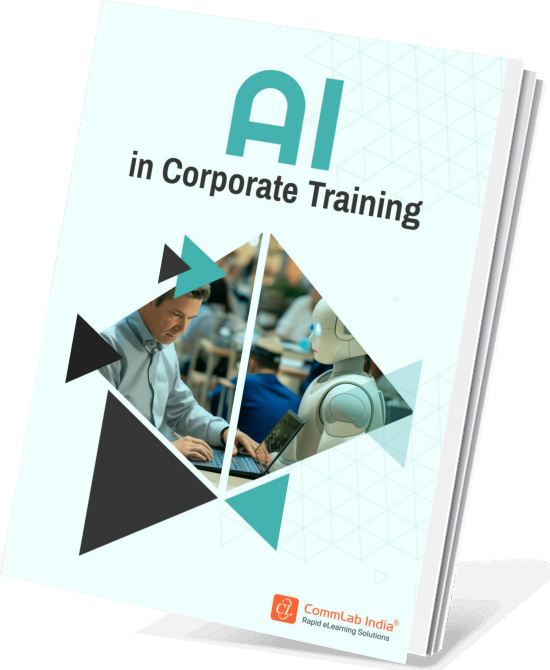
AI in Corporate Training
Partner, Not Replacement
- AI in Corporate Training
- AI Toolkit for Super-charged Learning
- Challenges to Consider with AI Implementation
- And More!
Is an Learning Management System (LMS) Required for Adaptive Learning?
Any learning program that requires learner activities to be tracked needs to be hosted on an LMS. So is the case with adaptive learning. The LMS supports adaptive learning by:
- Being highly customizable
- Providing anytime, anywhere access
- Supporting a variety of content formats
- Displaying content dynamically
- Tracking every small progress made by the learner
- Supporting learning analytics
Here are the 4 best LMS platforms for adaptive learning.

Are there Different Levels in Adaptive Learning?
Yes, adaptive learning can incorporate different levels in a few ways. Depending on the level of adaptivity you require, there are adaptive learning software tools available in the market to help you achieve that level. Here are the common levels prevalent in adaptive learning:
1. Self-paced interactive level
At this level, a learner completes the summative assessment and immediately receives feedback on performance (questions answered correctly as well as incorrectly). If a requisite number of answers are correct, new content is unlocked.
2. Content level
The learner receives feedback on the summative assessment. He also receives an explanation for each wrong answer and can review sections of content related to that question.
3. Assessment level
A learner answers a question in the summative assessment. If he answers correctly, the next question is a tougher one. If the answer is incorrect, he is given a comparatively easy question before proceeding to more complex questions.
4. Assessment and content level
The learner answers all questions of a formative assessment and receives a tailored plan that contains relevant content and practice activities. After completing this, the learner takes the summative assessment, after which a new learning plan is generated.
5. Assessment and content level with high granularity
At this level, every step the learner takes to answer a question is recorded. Feedback is given at each step. How the learner performs at this level decides the difficulty level of the next question.
Watch this video to learn the art of giving constructive feedback.
What Questions to Ask for Successful Adaptive Learning Implementation?
1. Is My Organization Ready?
Are you ready to implement adaptive learning? Implementing it should not be considered a simple task as there are a lot of things to look into before the implementation – time, budget, technology, and expertise being the most important factors.
Time
For adaptive learning, you need a large volume and variety of content. For example, if you are delivering training on product knowledge and one of the modules deals with features, you may need to develop a video explaining the features, an infographic on the same, and maybe also a podcast. Hence, you need to decide if your organization can dedicate sufficient time to develop and maintain content.
Budget
Now, developing so much content will be a costly affair, be it developing in-house or outsourcing the requirements. Besides this, setting up the adaptive learning platform, Internet access, and more will add to the additional costs. Ensure you have available budget upfront for the implementation.
Technology
An adaptive platform mainly works on predictive algorithms and the integration of Experience API, or a Learning Management System. While integrating them will make learning more effective, your organization also needs to have the necessary infrastructure and a dedicated team to support this technology.
Expertise
You also need to have the necessary know-how when implementing adaptive learning. Since it involves the integration of learning analytics and other technologies, a dedicated team should be in place who have enough expertise to guide and support learners as well as the organization.

AI in Corporate Training
Partner, Not Replacement
- AI in Corporate Training
- AI Toolkit for Super-charged Learning
- Challenges to Consider with AI Implementation
- And More!
2. What Should I Consider When Opting for An Adaptive System?
Adaptive learning software adjusts to the level of an individual based on their learning needs and skills, focusing on accelerating and improving their performance. They can either be used as standalone software or combined with your existing LMS.
While adaptive learning systems are the “mastermind” behind adaptive learning, there are a few factors you need to consider before opting for one:
- The number of learning paths it offers
- The kind of data it gathers
- The quality of reporting
- The nature of feedback provided
- The customization needed to fit your needs
3. What are the Likely Threats?
While adaptive learning indeed has proved to be extremely beneficial, it faces a few threats too. As an organization planning to implement adaptive learning, you must know about:
Embracing Paradigm Shift
Delivering training through adaptive learning is on a different level. Hence, not everybody might be receptive toward this strategy, no matter how beneficial it is, especially people who are not comfortable with technology. Also, not every individual likes the thought of being constantly monitored and tracked, which, in turn, might make them skeptical about adopting this new method of learning.
Dependent on Stable Network Ability
Adaptive learning is impossible without a stable network connection throughout. A lack of stable Internet connection will lead to an ineffective (or impossible) learning experience. Besides the Internet, the choice of adaptive learning platforms and the server also play a great role in delivering effective adaptive learning.
Wrapping up!
Adaptive learning has proven to be a game-changer for corporate training, offering personalized experiences that cater to individual learner needs and drive better outcomes. By leveraging data-driven insights, companies can ensure every employee progresses at their own pace, acquiring the skills and knowledge crucial for success in a rapidly evolving workplace. With its ability to enhance engagement, retention, and performance, adaptive learning represents the future of employee training and development.
If you're ready to take your corporate training strategy to the next level, download CommLab India's eBook on "AI in Corporate Training" to explore how cutting-edge technology can revolutionize learning in your organization. Start building a smarter, more effective workforce today!




